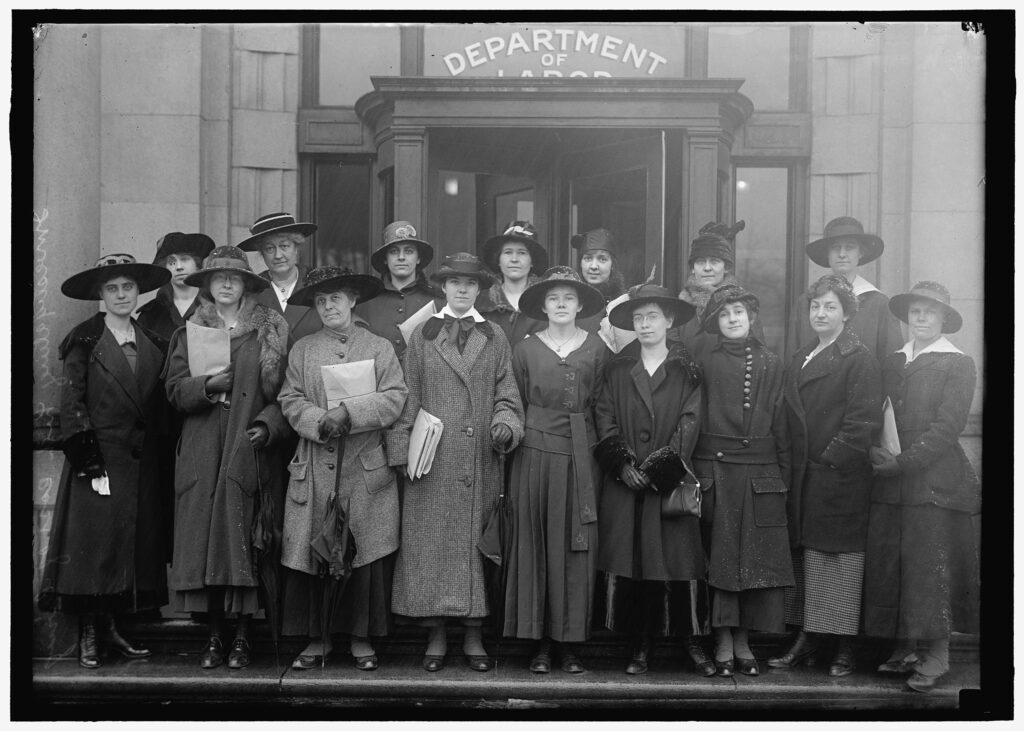
March 8, 2023
Unions have the power to facilitate major strides for working women. As of 2023, there is still a significant gender pay gap in this country; but unionizing can help women get closer to ending this disparity. According to the U.S. Bureau of Labor Statistics, unionized women make – on average – 23% more money than women without union representation. Women in unions are also far more likely to have paid leave and stronger protections against discrimination and sexual harassment in the workplace. However, these benefits were not always afforded to women. On International Women’s Day, we honor the working women of the past and NFFE’s women leaders who fought for equal rights and pay – issues which NFFE is proud to continue to fight for today.
Florence Ethridge fought hard for women to be granted the right to vote and the opportunity to hold public office. She earned a law degree and served as an attorney across the federal government, including for the Census Bureau, the Department of Commerce, and the Office of Indian Affairs. Ethridge was the first treasurer of NFFE and in 1918, she was elected Vice President of the union. In this position, she often testified before Congress where spoke out about the discrimination and biases women faced every day. Ethridge also advocated for radical change and a deeper understanding of why this sexism existed in America. Florence published articles in the NFFE monthly newspaper on topics such as retirement and pension legislation, the length of the work week, and gender inequality.
Ethel Smith is another notable woman in NFFE history. Born in 1877, Smith was the eldest child in a working-class family, so she was familiar with economic difficulty and the value of hard work. Smith’s career in civil service began when she took a position in Chicago as a stenographer for the Census Office. After a long, successful career in the civil service, she left due to discriminatory practices and inconsistent wage standards in the workplace that occurred simply because she was a woman. In 1917, she joined NFFE to serve on the union’s legislative committee, where she took an active role in lobbying Congress to ensure women in the federal government were compensated equally for the same work performed alongside their male coworkers. Smith became the Director of NFFE’s Publicity Bureau, where she oversaw the union’s newspaper publishing. She was very highly acclaimed for her articles on women’s rights and in her efforts to reclassify federal employees to earn women equal pay and benefits.
NFFE is proud that since our foundation in 1917, and throughout our over 100-year history, this union has been led by women and has fought for the rights of women in the workplace.
